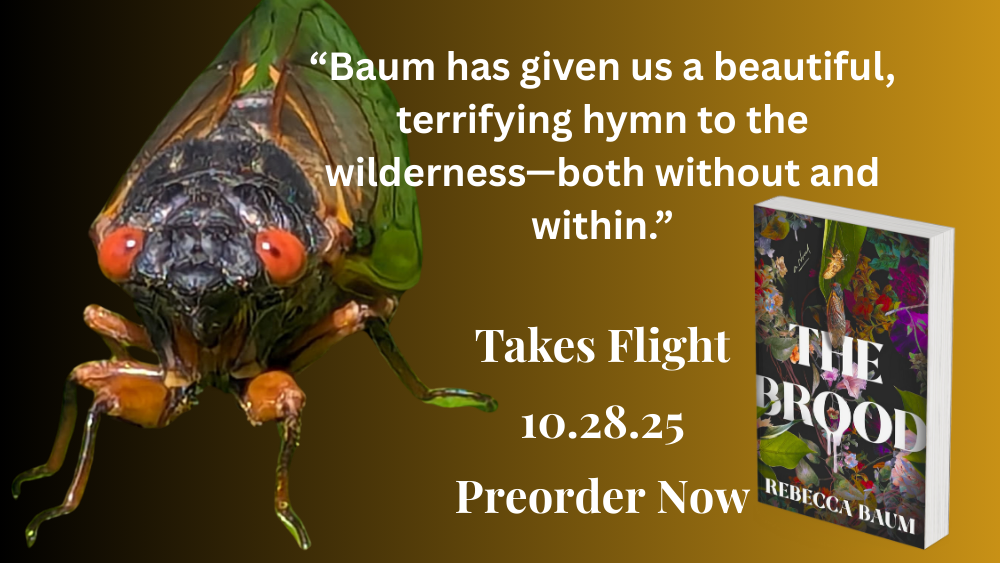Review of THE BROOD By Susan Aikin
In The Brood, Rebecca Baum crafts a dark, surreal plunge into the haunted, humid heart of nature—and womanhood. We follow Mary Whelton, a razor-sharp Manhattan lawyer used to skyscrapers and boardrooms, who finds herself literally and metaphorically dragged into the primordial forest by Girl, a feral and enigmatic captor. What begins as a survival story rapidly becomes something far more mythic and monstrous: a visceral dissection of the female experience told through the lush, terrifying lens of body horror.
Baum’s prose is hypnotic, lush, and bristling with menace. Every page pulses with life—cicadas buzz incessantly, roots twist with intent, and the forest hums with ancient hunger. The style holds the reader in thrall, even when the characters remain opaque or unrelatable. Sympathy isn’t the point. Rather, the novel insists we witness transformation and listen to the unspeakable voice of the wild.
At the core of The Brood is the abject. In line with Julia Kristeva’s theory of abjection, Baum plunges us into a space beyond the symbolic order—a world ruled not by logic or law, but by fluids, flesh, and instinct. Motherhood, reproduction, and the grotesque beauty of female biology are portrayed not as gentle or nurturing, but as sublime and savage mysteries from which modern life has tried—and failed—to distance itself.
Relationships between women, especially between Mary and Girl, are marked by power, violence, fascination, and a strange, undeniable intimacy. Their dynamic is not about solidarity in the traditional sense, but about a deeper reckoning with female inheritance, trauma, and transformation. As Mary’s body begins to betray her, we see her slide into the realm of the Brood—a realm where the natural world reasserts itself, uncaring and all-consuming.
Cicadas are the avatars of this unknowable realm. Revolting yet mesmerizing, they symbolize the raw, unfiltered force of nature that the novel champions: ancient, cyclical, and beyond our control. It is this return to the savage, to the womb of the world, that feels both terrifying and necessary.
The Brood is not an easy read—but it is an essential one. It forces us to confront the things we would rather not think about: our bodies, their decay and function, and our place within a natural world that does not bend to us. In the end, Baum has given us a beautiful, terrifying hymn to the wilderness—both without and within.
Susan Aikin,
Emmy Award-winning filmmaker and author of award-winning historical fiction We Shall See the Sky Sparkling and new women's fiction novels Weight of the Heart and Nadine, and www.susanaaikin.org

